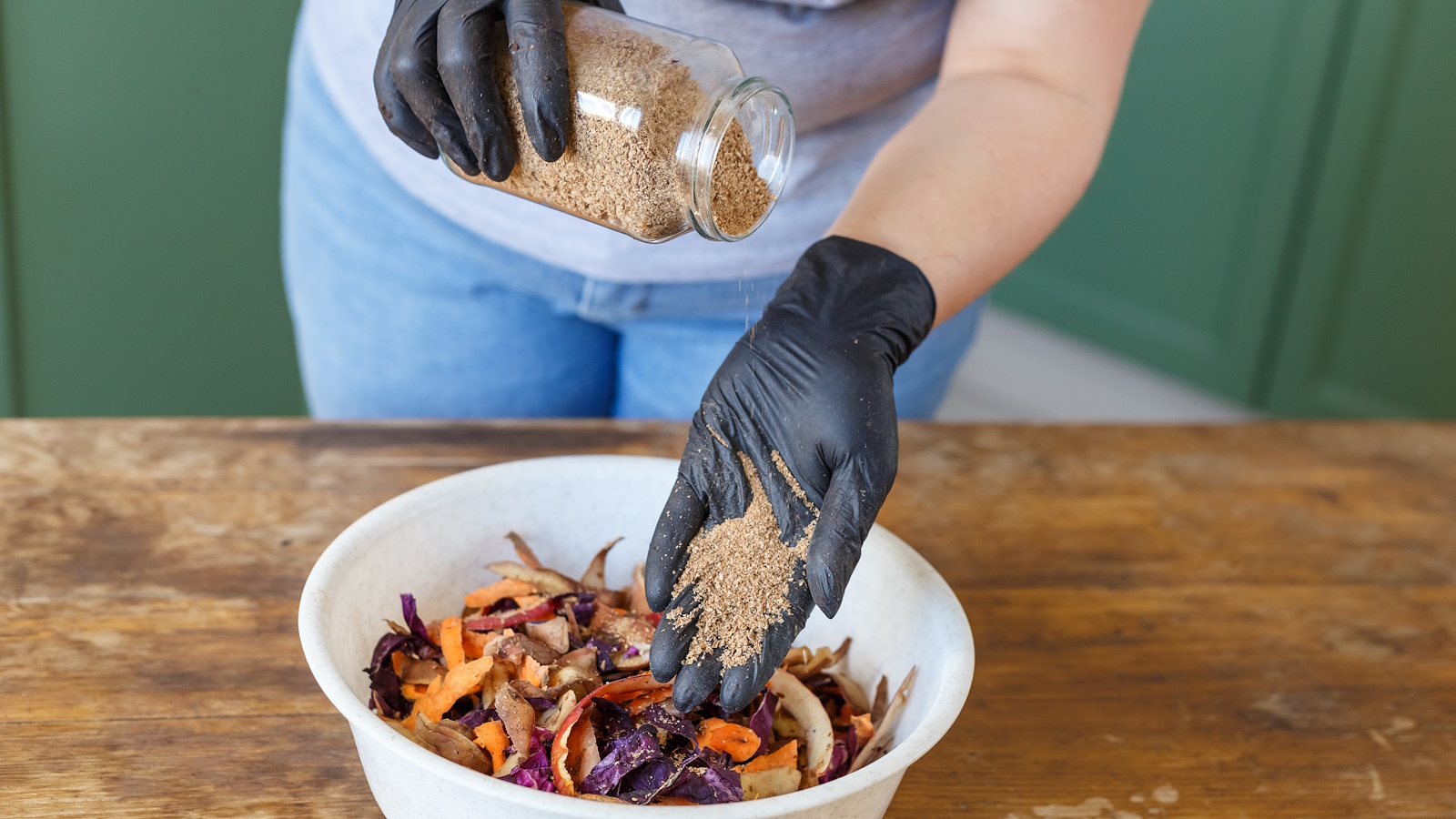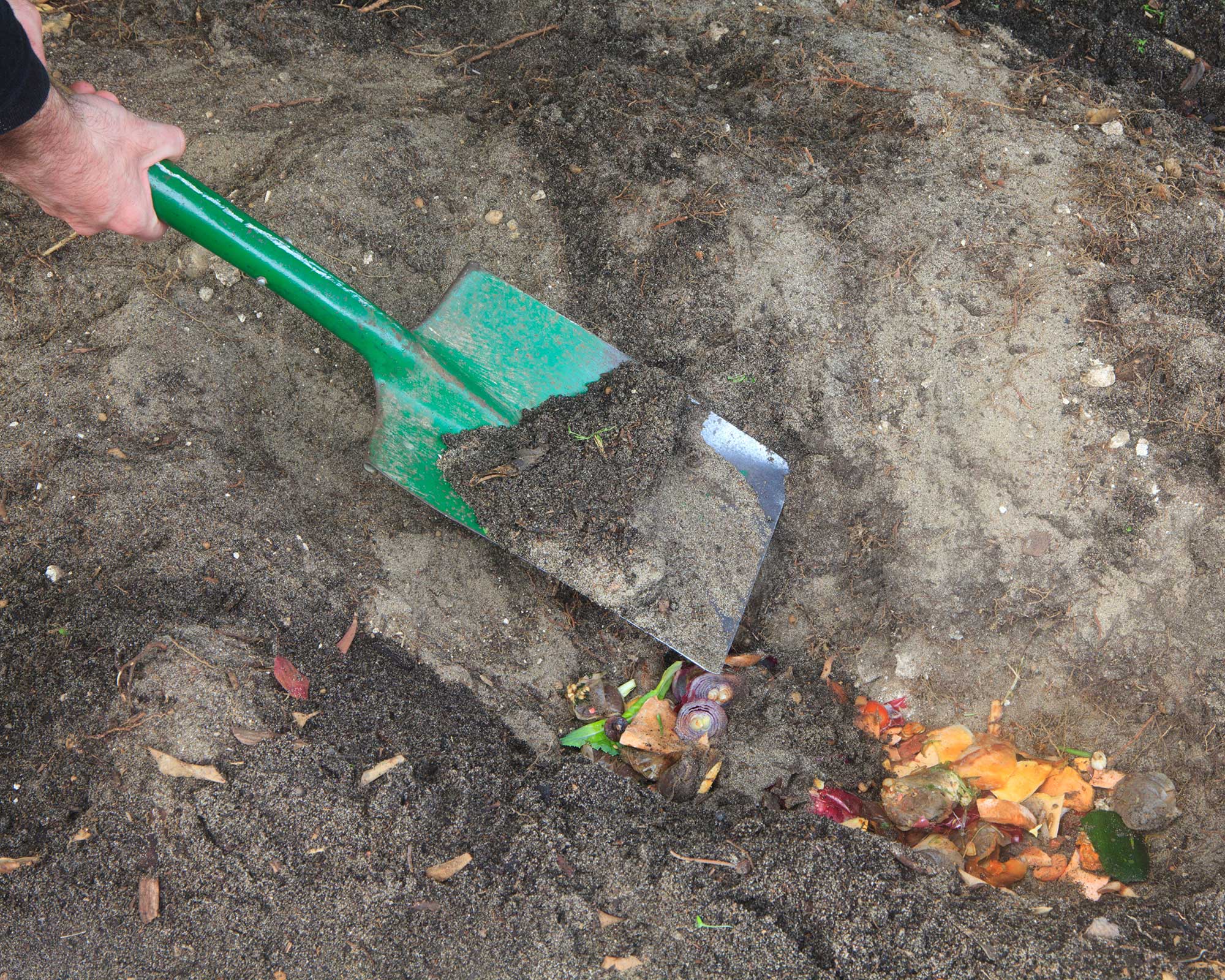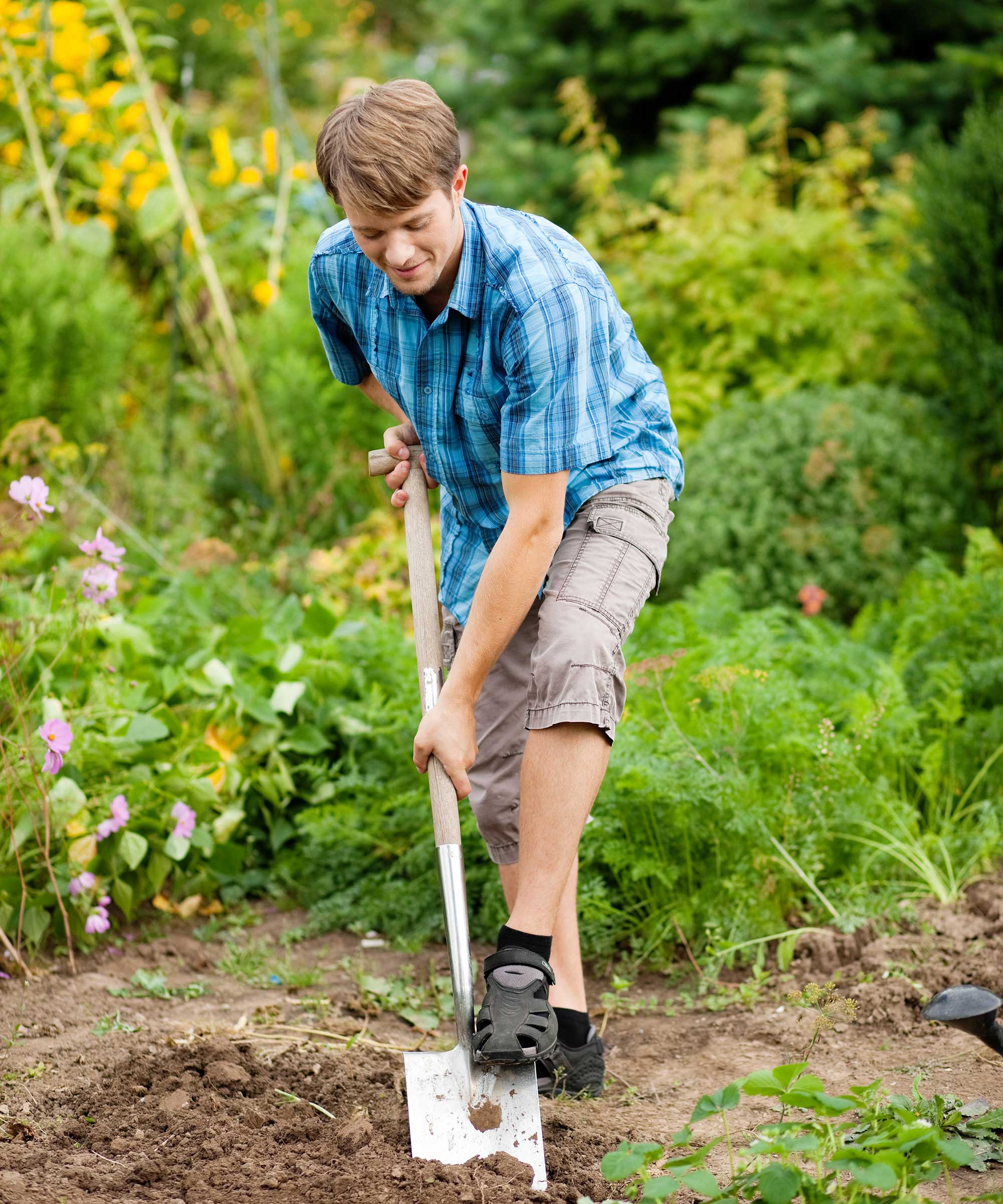
You might be familiar with regular garden composting, but have you ever heard of bokashi composting? Hailing from Japan, it is a space-efficient and faster alternative to traditional compost creation, where food waste is fermented before being added to the soil.
Because it is usually done in a small space in the home, it is perfect for city dwellers or anyone without space for an outdoor compost bin.
As with regular composting, it's ideal if you're looking to live more sustainably, and the pickled end result is a valuable source of nutrients for plants once it's broken down into the soil. But how does it work, and what are the benefits? We explain all, so you can try it at home.

What is bokashi composting?
Bokashi composting requires a special, air-tight bokashi bin (Amazon has a selection), which food scraps are scraped into. These small bins are perfect for keeping in the kitchen – in a cupboard under the sink, for instance.
All food types can be added, says the experts at Bokashi Living: 'If you eat it, it can go in the bin.' Ideally, chop it into small pieces first and avoid adding rotting food or excess liquids.
Every time you add food waste to the bin, you need to sprinkle 'bokashi bran', available from Amazon, (which contains lots of good bacteria) on top – around one tablespoon per inch. Once it's full, your bin is left to sit somewhere warm for two weeks. It's a good idea to have two bins – that way, you can add scraps to one while the other is busy fermenting.
The liquid it produces should be drained from the tap every other day during this fermentation time and works well for fertilizing plants – but bear in mind that it needs to be used straightaway, says Nick Kiss, the owner of Bokashi Living, in one of his informative Youtube videos. As it's strong, you will need to dilute it with water at a rate of 100:1, he adds. Otherwise, you can simply dispose of it down the sink – it's safe and environmentally friendly to do so.
After two weeks, the food waste should have fermented. A telltale sign is a pickle-like smell and, possibly, white mold.
What do you do with the fermented waste from bokashi composting?

It's important to note that the fermented food waste from bokashi composting is a 'pre-compost' and cannot be used for mulching your garden, unlike traditional compost.
Instead, it can be added to your existing worm composting system – it will speed up the process. You can also add it to your normal outdoor compost heap, where it will continue to break down quickly.
Alternatively, you can dig it into trenches in your garden, away from existing plants. Mix it up a little with the soil as you dig it in, and then bury it with more soil. After a couple of weeks, you can plant into it, or dig it up and spread it around your garden.
What are the benefits of bokashi composting?

'Bokashi compost is richer in effective microorganisms than any other form of compost,' says Nicki Casley, Partner of Bokashi Living. 'Just as microbes play an essential part in our own body's health, microbes also play an important part in the health of our soil and gardens. Simply put, plants thrive when the soil is full of beneficial microorganisms.
'For homeowners, food waste is the cream of the crop for feeding these microbes,' she continues. 'It has a much higher value for building healthy, bio-diverse soils than general yard trimmings.'
Another benefit of bokashi composting is how quickly it works, says Nick Kiss. The reason for this is the anaerobic (oxygen-free) environment it's made in, which means the decomposition occurs at a rapid pace. Although there are other alternatives that are faster than traditional composting – such as hot composting – with bokashi composting, food waste can break down in just a couple of weeks ready to be put outdoors.
It's also easier, says Nick, and will work with all food waste – meat and dairy included – unlike with regular composting. This means it's even more effective at reducing household waste and living a more sustainable lifestyle.
Last but not least, bokashi composting is perfect for plots with small gardens that don't have space for a regular outdoor compost bin. As mentioned, the compact bins can be kept indoors, tucked into a cupboard or on your kitchen sideboard.
FAQs
Does bokashi compost attract pests?
You may be worried about rats or other pests being attracted to your bokashi compost – but there is no reason to be. During the initial pre-composting (fermentation) phase, the bin is sealed, so no odors are released and no pests can get in. And you don't need to worry once it's added to your yard, as they are not attracted to the fermented waste.
Bokashi compost is very acidic, so it is not recommended for use as a houseplant fertilizer unless heavily diluted. If you're looking for more ways to improve your composting game, we reveal how to compost in winter, to have fresh nutrients ready for your plants in time for spring.







